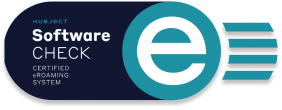About our AI Anomaly Detection Module
EV charging networks are growing fast—but so are the threats. From cloned RFID cards to ghost sessions and hardware faults, hidden anomalies are silently draining revenue and damaging trust. Most systems don’t catch them.
Solidstudio’s AI Anomaly Detection Module was built specifically for Charge Point Operators and eMobility Service Providers to solve this.
Business Impact

Financial Loss Prevention
Cloned cards. Double sessions. Implausible travel speeds.
Our module detects fraud at machine speed—before it appears in your ledger. Each detector hunts a different threat, like overlapping sessions at distant stations or hacked payment sequences.

Enhanced User Trust & Security
Your drivers deserve reliability.
When a user sees “phantom” sessions or unexpected charges, trust erodes fast. By monitoring every session for anomalies and catching issues early, we help you deliver peace of mind and a reputation for safety.

Data-Driven Insights
Every anomaly contains a signal.
Statistical and predictive detectors spot behavioral shifts that help you:
- Identify underperforming stations
- Anticipate peak loads
- Redesign infrastructure with precision

Operational Efficiency
Manual reviews are slow and error-prone.
Our system automates session monitoring, highlights real threats, and minimizes false alarms—so your team can fix issues, not hunt for them.

Operational Efficiency
The threats evolve. So should your tools.
Our detector-based architecture is modular:
- Plug it into your existing CPMS
- Extend with custom models
- Prioritize the fraud risks that matter most today—it’s built to scale with you, not to hold you back.

Smart, Targeted Detection — How It Works?
The system incorporates multiple specialized Machine Learning detection mechanisms.
Geographical Detector
Stops card cloning and impossible travel.
Built on precise Haversine-distance calculations, this detector compares session coordinates and timestamps to verify that movement between charging events is physically possible.
 Flags overlapping sessions from the same RFID at distant locations
Flags overlapping sessions from the same RFID at distant locations Calculates implied travel speed between events
Calculates implied travel speed between events Triggers alerts when the data suggests “teleporting” behavior or bilocation
Triggers alerts when the data suggests “teleporting” behavior or bilocation
Statistical Anomaly Detector
Learns what’s normal and spots what’s not.
Using unsupervised models like Z-score and IQR, this detector benchmarks each charging session against typical behaviors for that station, user, and tariff.
 Tracks metrics like energy draw, session duration, and start time
Tracks metrics like energy draw, session duration, and start time Identifies subtle irregularities that don’t follow the bell curve
Identifies subtle irregularities that don’t follow the bell curve Suppresses false positives from seasonality or edge-case usage
Suppresses false positives from seasonality or edge-case usage
Predictive Analysis Layer
Looks ahead to stop fraud and faults before they surface.
This engine treats each token’s activity as time-series data forecasting what “should” happen based on historical patterns.
 Detects sudden usage spikes, long inactivity periods, or strange sequences
Detects sudden usage spikes, long inactivity periods, or strange sequences Highlights signs of coordinated fraud, token farming, or hardware degradation
Highlights signs of coordinated fraud, token farming, or hardware degradation Allows proactive maintenance i.e. swapping a €10 part before it causes a €3,000 failure
Allows proactive maintenance i.e. swapping a €10 part before it causes a €3,000 failure
What is the role of software within the EV charging ecosystem?
Our CEO, Paweł, shared some valuable insights about the place that software holds within the eMobility environment in one of our latest publications. The ebook breaks down the cases of what are the involved entities, why should they use separate digital tools, what are the challenges of creating EV charging software and many more.

ISO 270001 Certificate
Believing that our continued dynamic growth requires standardization and a systematic approach, including ensuring information security, we have decided to implement, maintain, and improve an Information Security Management System in accordance with the international standard PN-EN ISO/IEC 27001:2017.

Intercharge CHECK Software Certificate
In pursuit of the highest quality behind our products and their matching with industry standards, we have successfully passed Hubject’s certification. The certification process conducted between Hubject GmbH and Solidstudio sp. z o.o., affirmed the seamless interoperability of our EV charging digital solutions with the Hubject platform.

OCPP Certification Program
Recognizing the importance of interoperability and adherence to industry standards, we have successfully obtained the official OCPP Certification issued by the Open Charge Alliance. This certification confirms that our implementation is fully compliant with the OCPP 1.6/2.0.1 specification, ensuring reliable communication and seamless integration within the EV charging ecosystem.